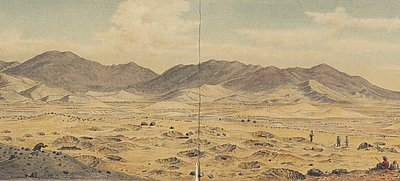Human Remains on the Move. Violent Contexts, Institutional Travels, and the Global Afterlives of the Dead
14. März 2023, 15.00 bis 19.00 Uhr Vienna Wiesenthal Institute, Research Lounge 1010 Wien, Rabensteig 3
Gudrun Rath, Professorin für Kulturwissenschaft an der Kunstuniversität Linz, hält den Vortrag The Return of Ataï: ‘Science’, Skulls, Ongoing Struggles im Rahmen des Workshops.
In the summer of 2022, the transcontinental travel of a single tooth made the headlines worldwide. The tooth belonged to Patrice Lumumba – the first prime minister of the post-independence Republic of Congo, brutally murdered in 1961. Lumumba’s body was violently dismembered and dissolved. Only the tooth survived the destruction and, as a contentious trophy, travelled to Belgium with a Belgian policeman responsible for disposal of the body. In 2020, after it became publicly known that the tooth of the leader of the struggle for Congolese independence was in the possession of this individual for over six decades, a Belgian court ruled that it must be returned to Lumumba’s family. This finally happened in 2022: the tooth was publicly displayed in Belgium and then transferred to Kinshasa, where it was ceremonially buried. It is virtually impossible to know if other complete or fragmentary human remains still reside in private archives of (descendants of) perpetrators of colonial and racialised violence, and - unlike those in public collections – will never be recovered and repatriated. And yet the travel of a single tooth from Congo to Belgium and back made manifest the deep entanglement of human remains in the past and ongoing legacies of violence but also their power to (re)instantiate debates about the ownership, dignity, and the subjecthood of dead bodies - in various culturally and geographically disparate contexts.
The journey made by Lumumba’s tooth should be seen in the context of the long history of circulation of human remains, also beyond the private realm, across many ‘scientific’ and heritage settings. Our conference takes a look at several of these cases in which human remains were put on the move. We look at their historical and contemporary travels to – and from – research institutions, collections and museums. The objective is to interrogate the politics behind these travels and their implications for thinking about the complex ontology of human remains, and about the modalities of violence to which they are posthumously subjected. Taking as a vantage point postcolonial and decolonial debates around repatriation of human remains still deposited in various public archives, museums and research institutions in the Northern Hemisphere, we trace the routes through which dead bodies travelled to those institutions – and the contexts of their deaccession. At the same time, we attend to the very material, political and affective presence of the human remains on the move between private and public bodies, between the formerly colonised to the colonisers (and back), and between global museums devoted to political violence in contexts other than colonial, including the Holocaust and the atomic bombing of Japan.
